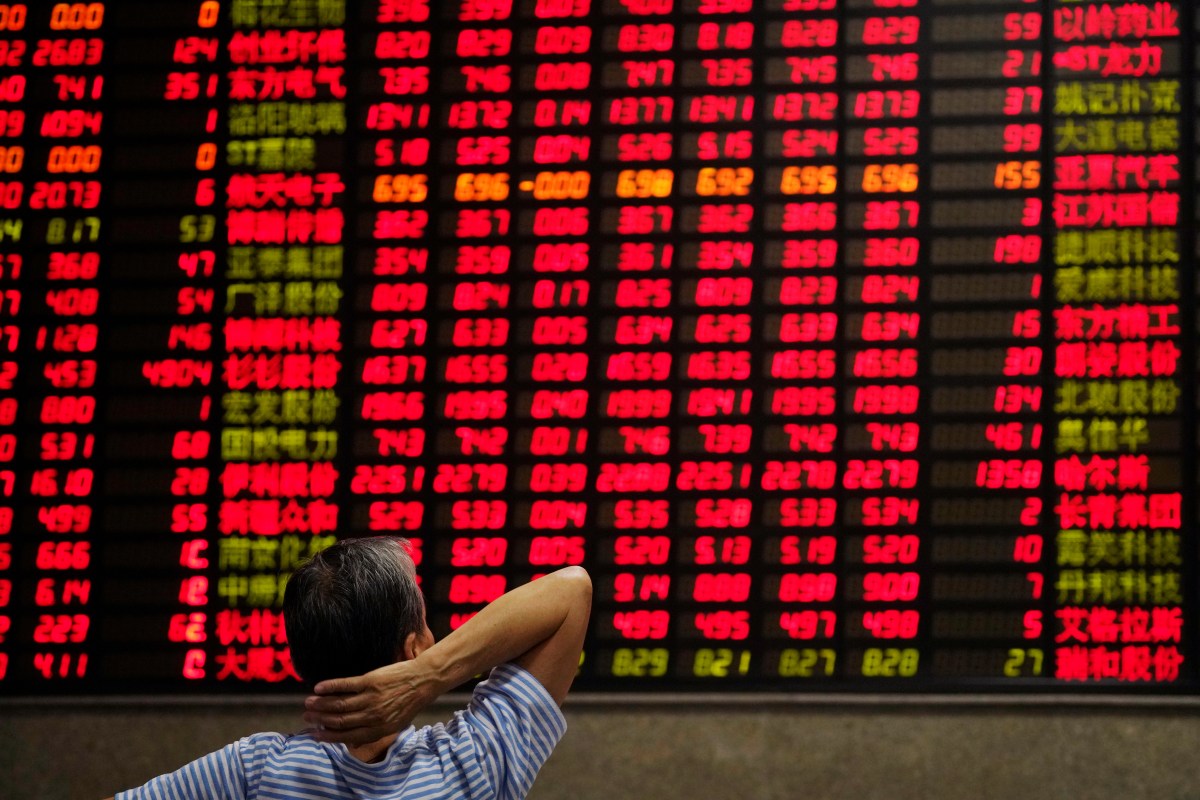By Shinichi Saoshiro
TOKYO (Reuters) – Asian stocks advanced on Tuesday in anticipation of a cut in U.S. interest rates later this week while the pound tumbled to a 28-month low versus the dollar due to heightened concerns over prospects for a no-deal Brexit.
(Graphic: Asian stock markets’ performance: https://tmsnrt.rs/2zpUAr4)
In early European trade, the pan-region Euro Stoxx 50 futures MSCI’s broadest index of Asia-Pacific shares outside Japan was up 0.2%.
The Shanghai Composite Index <.SSEC> rose 0.3% and Hong Kong’s Hang Seng edged up 0.2%.
Australian stocks <.AXJO> climbed as much as 0.7% to touch a record high, supported by buoyant mining shares and adding to the previous day’s tech-driven gains.
Japan’s Nikkei <.N225> rose 0.4%, showing limited reaction to the Bank of Japan’s widely anticipated decision to stand pat on monetary policy.
The BOJ added it would ease “without hesitation” if the economy loses momentum for achieving the central bank’s 2% inflation target.
The U.S. Federal Reserve begins a two-day policy meeting later on Tuesday, which is expected to result in a 25-basis point cut in interest rates. If implemented, it would be the central bank’s first rate cut in a decade. Prospective monetary easing by the Fed has been a key factor behind the recent bull run by global equities, particularly U.S. stocks, which have notched up record highs over the past month.
“Up until now, many market participants had been on the sidelines while the markets factored in the likelihood of the Fed’s rate cut,” said Kota Hirayama, senior emerging markets economist at SMBC Nikko Securities, regarding gains by Asian stocks. “But with the Fed decision looming close some participants appear to be shaking off the caution and buying.”
Also drawing some attention were U.S.-China trade negotiations which begin in Shanghai on Tuesday, although expectations for progress during the two-day meeting are low with the markets hoping the two sides can at least detail commitments for “goodwill” gestures. In currencies, the pound extended an overnight slump and fell to $1.2120 Sterling has already lost 1.8% this week as investors scrambled to price in the possibility that a last-minute agreement to avert a no-deal Brexit may not be realized under British Prime Minister Boris Johnson, who has said the Brexit divorce was dead. The British government, facing an Oct. 31 exit deadline, said on Monday it assumed there would be a no-deal Brexit because a “stubborn” EU was refusing to renegotiate their departure.
“The pound is being dropped like a hot potato, as the likelihood of a no-deal Brexit becomes increasingly plausible,” wrote Ipek Ozkardeskaya, Senior Market Analyst at London Capital Group. “To many, it seems better to jump ship now, as things are about to get uglier as we approach the Oct. 31 deadline.”
The dollar index <.DXY> against a basket of six major currencies added to the previous day’s gains and touched a two-month high of 98.206, buoyed by sterling’s slide.
The yen The euro was little changed at $1.1138 Crude oil prices extended the previous day’s gains, with the Fed’s expected easing fuelling optimism that it would boost the economy and fuel demand in the world’s biggest oil consumer. U.S. crude futures were up 0.65% at $57.24 per barrel and Brent crude added 0.6% to $64.09.
(Editing by Sam Holmes and Jacqueline Wong)





















